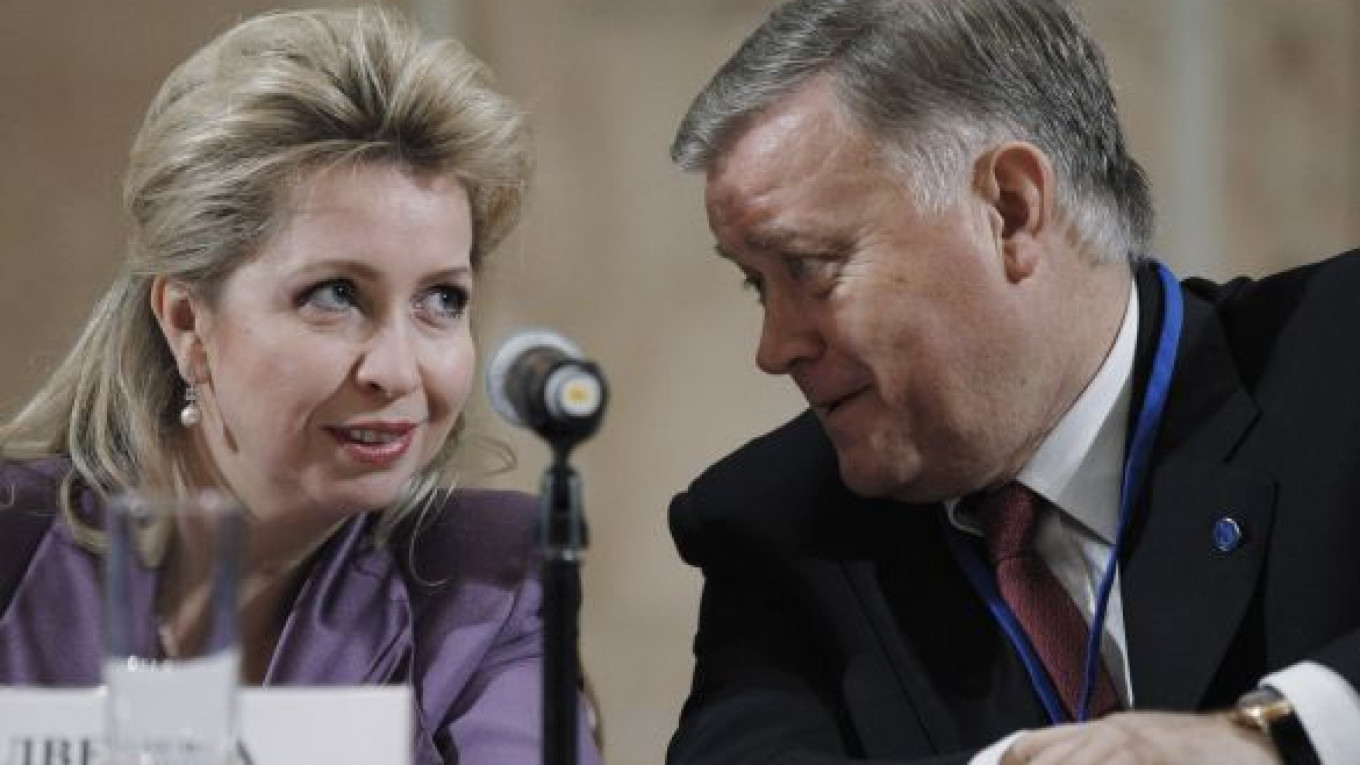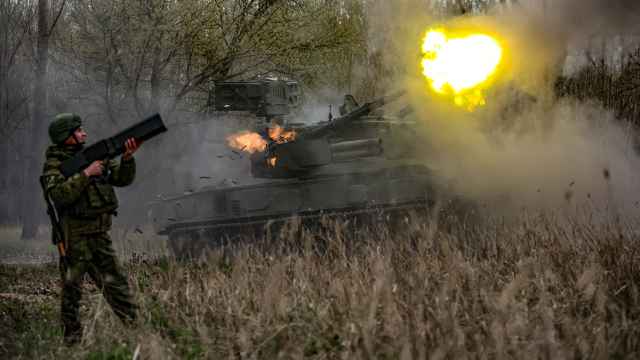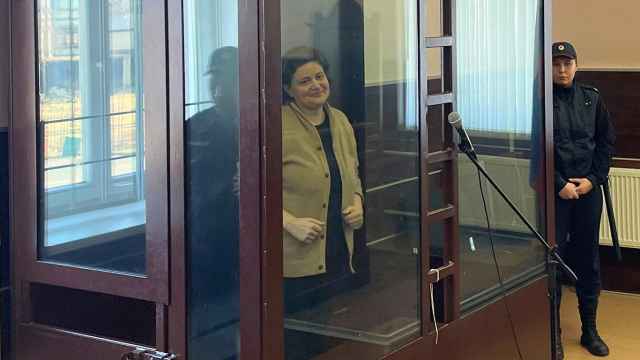Russian Railways and Italian conglomerate Finmeccanica announced on Friday that they had signed a memorandum of understanding on the creation of a joint venture to develop signaling, telecommunications, automation and safety technology for the Russian rail system.
The joint venture will develop and produce equipment for 100 stations, 100 vehicles and 50 railway lines by 2020. The value of the deal could reach 1.5 billion euros ($2 billion).
The deal will be implemented by Finmeccanica subsidiary Ansaldo STS, which will have a 49 percent share in the new company, and Russian Railways subsidiaries Institute for Systems Automatization and High-Speed Rail Lines, which will have 49 percent and 2 percent shares, respectively.
The joint venture will further develop the ITARUS-ATC safety and signaling system, which the Italian and Russian companies introduced last year, so that Russian trains entering Finland would meet European standards. New traffic management and centralized dispatching components will be created. The latter will use microprocessor and satellite technology.
Creation of new efficiency and safety strategies that will include new risk assessment and intelligent transportation systems are also included in the agreement.
Ansaldo STS spokesman Roberto Alatri told The Moscow Times that, under the memorandum, Russian Railways will place five separate orders during the next five years for implementation through 2020.
Ansaldo "may provide technology that we have already developed, or there is the possibility of developing new technology" at the joint venture, which will be based in Russia, Alatri said.
Alatri said Russian Railways president Vladimir Yakunin stated in an interview published in Italy that the railway is satisfied with the performance of the ITARUS-ATC system, following a trial that began in January, and that it was the deciding factor in continuing the collaboration.
The Institute for Systems Automatization signed a contract with Ansaldo STS last year for the trial application of their signaling system in Sochi. That contract was for two and a half years and worth 7.4 million euros.
Russian Railways collaborates with world leaders in technology as a matter of policy, Finam Management analyst Dmitry Baranov commented, and it stays abreast of safety developments.
"It has worked for a long time without serious accidents. That has been a top priority for the company, and it continues to be," Baranov said.
Baranov cited Russian Railways' agreements with Siemens and Alstom as examples of its international ties.
Russian Railways signed an agreement with Siemens last week on the creation of a new engineering center to produce electric trains. It also signed an agreement this month with Alstom to develop a new freight locomotive.
Baranov said Russian Railways has stated its intention to increase the speed of its passenger and freight trains, which will require new safety and management technology.
The Italian company will receive greater exposure in Russia, which could give it a strategic advantage while other CIS countries and the Baltic nations upgrade their rail systems, Baranov said. In addition, technology developed for the extremes of the Russian climate could find a ready market in other countries where the rail system operates in extreme conditions.
The government approved a $28.5 billion investment plan for the railroad for 2010 through 2012 last December. Since then, those plans have undergone several revisions. At the end of September, Yakunin announced an increase in 2011 spending, boosting investment plans for the year by over $2 billion, to about $11.5 billion.
A future deficit is foreseen in the investment plan, however. Yakunin recently disputed Deputy Transportation Minister Andrei Nedosekov’s statement that the railroad’s controlling share package in the TransContainer shipping company might be reduced to less than 25 percent, with the proceeds of the sale going to cover the shortfall.
The railroad reduced its share in that company from 85 percent plus one share to 50 percent plus one share in an initial public offering earlier this month. TransContainer earned a net profit of more than $9 million in the first nine months of this year.
Editor's note: An earlier version of this article incorrectly identified analyst Dmitry Baranov as working for UralSib. He works for Finam Management.
A Message from The Moscow Times:
Dear readers,
We are facing unprecedented challenges. Russia's Prosecutor General's Office has designated The Moscow Times as an "undesirable" organization, criminalizing our work and putting our staff at risk of prosecution. This follows our earlier unjust labeling as a "foreign agent."
These actions are direct attempts to silence independent journalism in Russia. The authorities claim our work "discredits the decisions of the Russian leadership." We see things differently: we strive to provide accurate, unbiased reporting on Russia.
We, the journalists of The Moscow Times, refuse to be silenced. But to continue our work, we need your help.
Your support, no matter how small, makes a world of difference. If you can, please support us monthly starting from just $2. It's quick to set up, and every contribution makes a significant impact.
By supporting The Moscow Times, you're defending open, independent journalism in the face of repression. Thank you for standing with us.
Remind me later.






